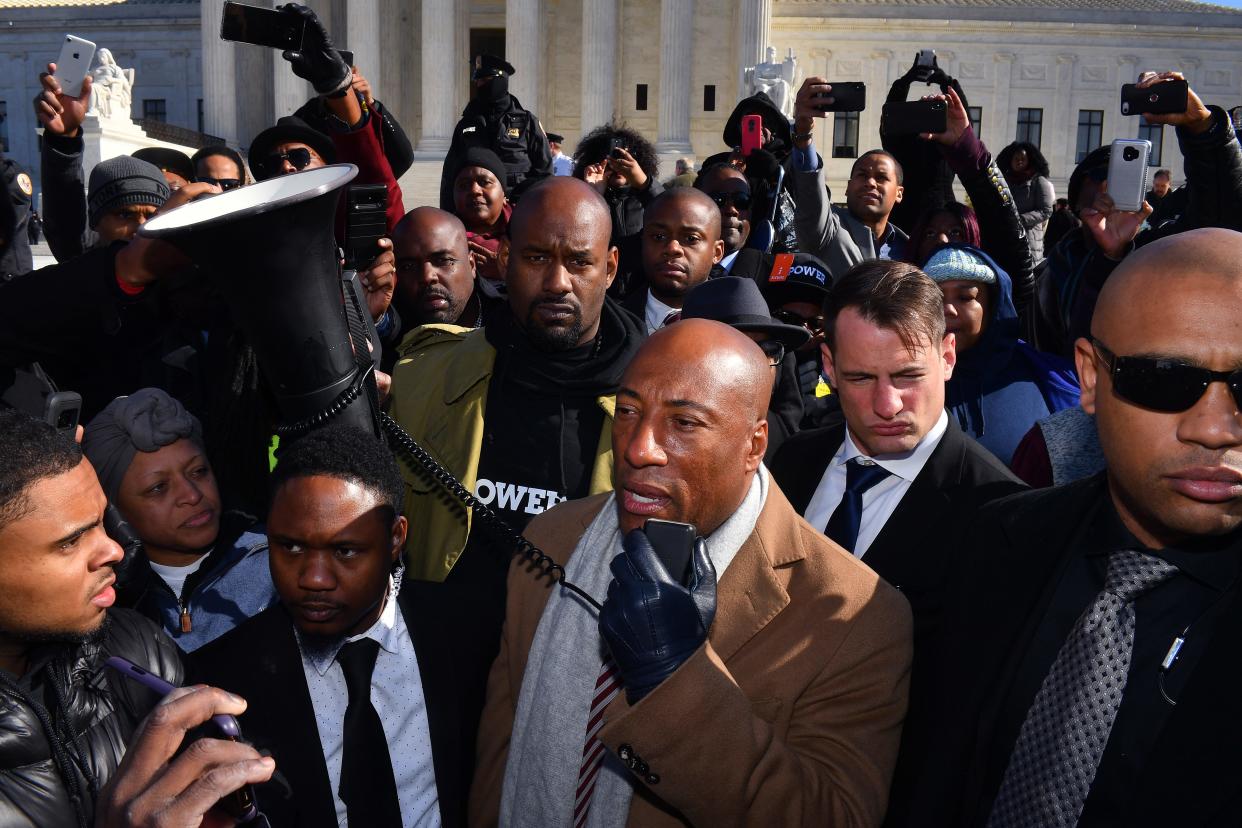Racial discrimination case against cable giant Comcast gets tentative support from Supreme Court

WASHINGTON – The Supreme Court appeared likely Wednesday to let a racial discrimination claim against the nation's largest cable TV company go forward, even though it might be difficult to prove.
The justices' inclination would be a victory for Byron Allen, an African American media mogul who sued telecommunications giant Comcast, as well as Charter Communications, for refusing to distribute his stations while launching scores of mostly white-owned networks.
But both liberal and conservative justices indicated that while there may be enough evidence of racial bias for now, Allen's Entertainment Studios Network and the National Association of African American-Owned Media eventually would have to prove that race was the deciding factor for Comcast.
The difference between what gets Allen's lawsuit into the discovery phase in California and what would be required to win prompted Associate Justice Samuel Alito to wonder if the case "should be permitted to go forward toward its inevitable doom."
Even if a higher legal threshold awaits, civil rights groups have said it's crucial that such discrimination claims be allowed under an 1866 civil rights law governing business contracts.
“This is the most important civil rights case that will be heard by the Supreme Court this term," said Kristen Clarke, president of the Lawyers’ Committee for Civil Rights Under Law. "The court should reject this challenge (by Comcast) to help ensure that victims of discrimination get their day in court and have the opportunity to be heard."
The court seemed likely to grant that wish, if only to allow Allen to move ahead. Several justices said he had enough allegations of racial animus to make his case at such an early stage.
"In my years of looking at discrimination complaints, it's pretty rare to throw one out at the motion-to-dismiss stage, as long as it passes, you know, a pretty low bar," Associate Justice Brett Kavanaugh said.
As one example, the original lawsuit against Comcast claimed that a company executive said, "We're not trying to create any more Bob Johnsons" – a reference to Robert Johnson, the founder of Black Entertainment Television, which was sold to Viacom for $3 billion. Comcast has denied the allegation.
"Comcast did not want to support an African American media entrepreneur who would compete against the white-owned networks Comcast owned and/or carried," the complaint alleged.
Entertainment Studios lost in federal district court but won a reversal at the U.S. Court of Appeals for the 9th Circuit. A key issue in the case before the Supreme Court is whether Allen's network must show that race was the sole reason for the denial of a contract or just one factor.
Comcast asked the justices to reverse the appeals court's decision, claiming Entertainment Studios "alleged a vast conspiracy among video programming distributors, governmental agencies, and prominent civil-rights figures," including the NAACP and Al Sharpton.
In a statement after the argument concluded, Comcast said the case "centers on a narrow, technical point of law that will not in any way lessen the nation’s civil rights laws. Comcast believes that the civil rights laws are an essential tool for protecting the rights of African-Americans and other diverse communities, and this case will not change those protections."
Comcast's lawyer, Miguel Estrada, told the court Wednesday that Allen's company was turned down for "entirely appropriate business reasons having nothing to do with race."
But University of California-Berkeley Law School Dean Erwin Chemerinsky, representing Allen's Entertainment Studios, said Congress in 1866 wanted "to open the door to claims with regard to race discrimination in contracting, not to close that door."
This article originally appeared on USA TODAY: Racial bias case against Comcast gets early support from Supreme Court

